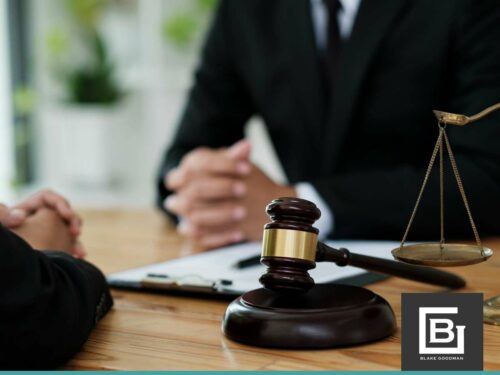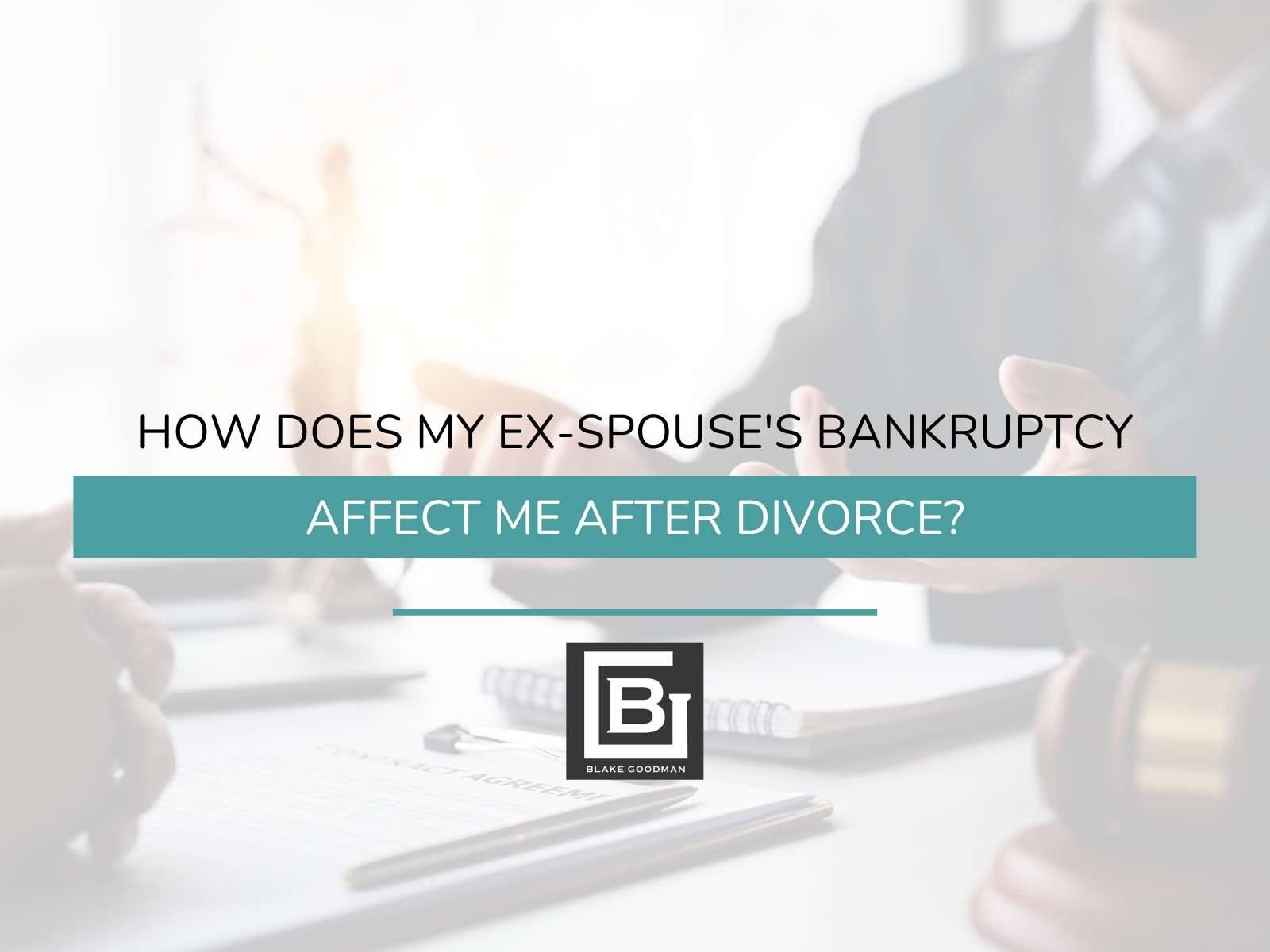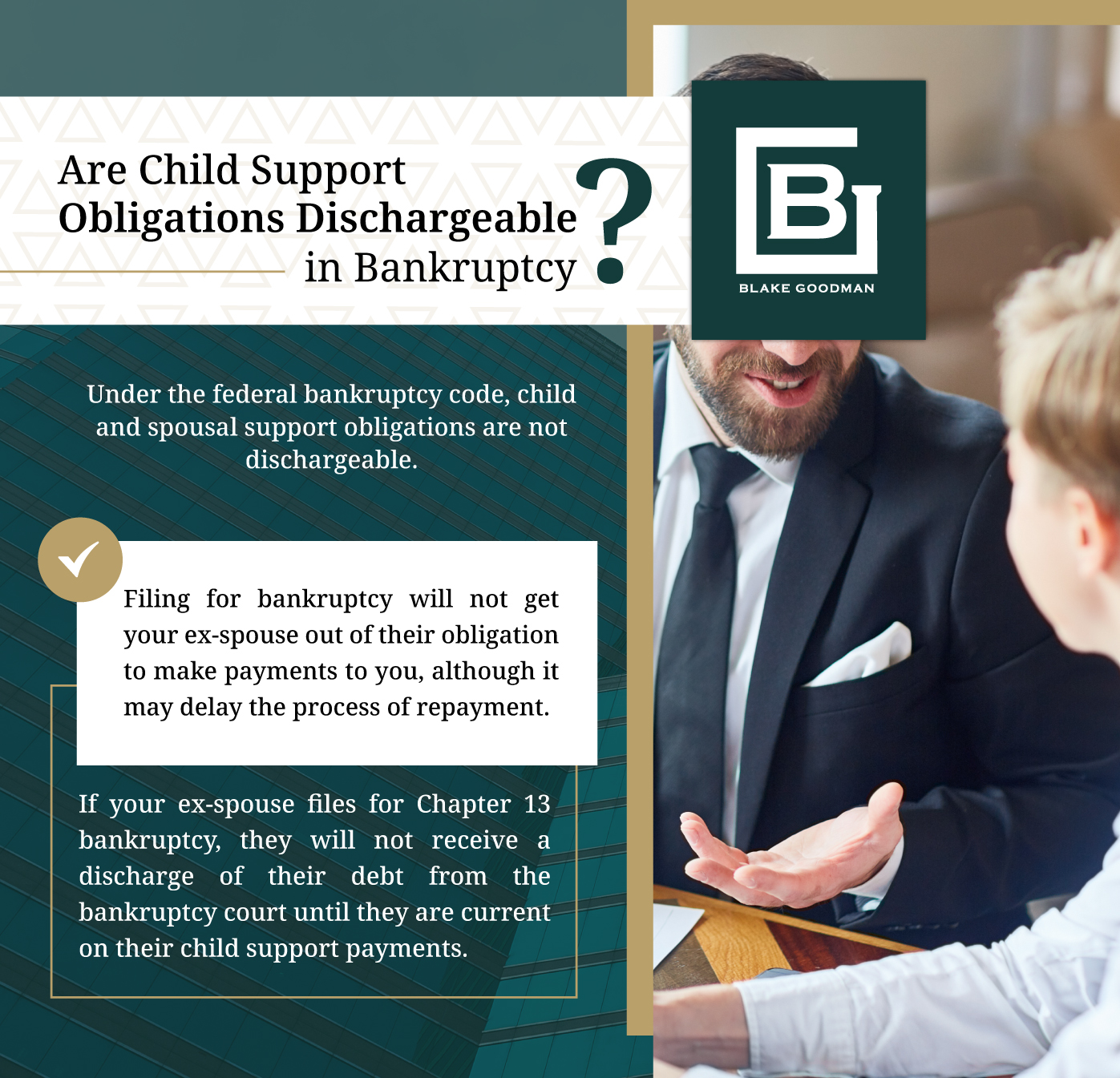What an Ex-Spouse’s Bankruptcy Means for Your Shared Loans
Financial disputes and stress are among the most common reasons why couples divorce. When couples are financially struggling while still together, they may struggle even more when living separately. In many cases, one or both spouses may consider filing for bankruptcy during or immediately after their divorce.
What happens if your ex-spouse files for Chapter 7 bankruptcy or Chapter 13 bankruptcy? The answer is, it’s complicated. It’s always important to consult with your bankruptcy attorney to understand how an ex-spouse’s bankruptcy filing may affect your divorce proceedings.
Filing for bankruptcy during divorce proceedings can significantly complicate and extend the process, so it’s often best to wait until after the divorce has been finalized. If your divorce has already been finalized and your ex-spouse chooses to file for bankruptcy, your financial well-being doesn’t have to be compromised, which means it’s important to understand how their filing may (or may not) affect you. Here’s what you need to know.
The Impact of an Ex-Spouse’s Bankruptcy on Jointly Shared Loans and Your Credit

One issue to consider is the effect of your ex’s bankruptcy on your credit. For jointly-held credit obligations, you will still be responsible for the debt even if the bankruptcy discharges your former spouse from the repayment obligation. Be aware of what debt you divide in a divorce so you don’t end up taking on more than you originally agreed to.
Will My Ex-Spouse’s Bankruptcy Affect My Credit?
As far as your credit score, your ex-spouse’s bankruptcy should not have any effect. Even with joint or co-signed debt obligations, credit scores are individuals. The primary risk to your credit score is if you are held responsible for more debt than was originally agreed to, and you struggle to make the payments.
Your bankruptcy lawyer will probably tell you to keep a close eye on your credit reports after your ex-spouse files for bankruptcy. This is because the credit bureaus might accidentally put a mark on your credit report related to the bankruptcy without realizing you are divorced. By checking your credit reports regularly, you can make sure they stay accurate.
Are Child Support Obligations Dischargeable in Bankruptcy?
If you have child support, alimony, or spousal support arrangements with your ex-spouse, you may be wondering how their bankruptcy filing will affect these obligations. Under the federal bankruptcy code, child and spousal support obligations are not dischargeable. Although an automatic stay from a bankruptcy filing will prevent creditors from seeking payments, the automatic stay does not stop an obligated party from pursuing child support payments from the bankruptcy filer.
Filing for bankruptcy will not get your ex-spouse out of their obligation to make payments to you, although it may delay the process of repayment. If your ex-spouse files for Chapter 13 bankruptcy, they will not receive a discharge of their debt from the bankruptcy court until they are current on their child support payments.
Ex-Spouse’s Bankruptcy May Require Legal Guidance

If your ex-spouse files for bankruptcy, it may affect joint debts and property division from your divorce. Creditors could seek payments from you if you co-signed loans.
Consult with Hawaii’s Leading Bankruptcy Attorneys
If your ex-spouse has filed for bankruptcy, don’t wait to see what happens. Proactively protect yourself and your financial well-being by consulting with the trusted bankruptcy lawyers at Blake Goodman, P.C. We have been practicing bankruptcy law for over 30 years and have a comprehensive understanding of how an ex’s filing could affect you and how to protect yourself financially. Contact us today to schedule your free, confidential consultation. We’ll review your situation, discuss your legal options, help you understand how the law applies to your case, and determine the best way to move forward to protect your financial well-being.

Email: blake@debtfreehawaii.com
Website: https://www.debtfreehawaii.com/
HONOLULU OFFICE
900 Fort Street MallSuite 910
Honolulu, HI 96813
Phone: (808) 517-5446
AIEA OFFICE
98-1238 Ka'ahumanu StSuite 201
Pearl City, HI 96782
Phone: (808) 515-3441
KANEOHE OFFICE
46-005 Kawa StSuite 206
Kaneohe, HI 96744
Phone: (808) 515-3304
MAUI OFFICE
220 Imi Kala St. #203BWailuku, HI 96793
Phone: (808) 515-2037

Blake Goodman received his law degree from George Washington University in Washington, D.C. in 1989 and has been exclusively practicing bankruptcy-related law in Texas, New Mexico, and Hawaii ever since. In the past, Attorney Goodman also worked as a Certified Public Accountant, receiving his license form the State of Maryland in 1988.


